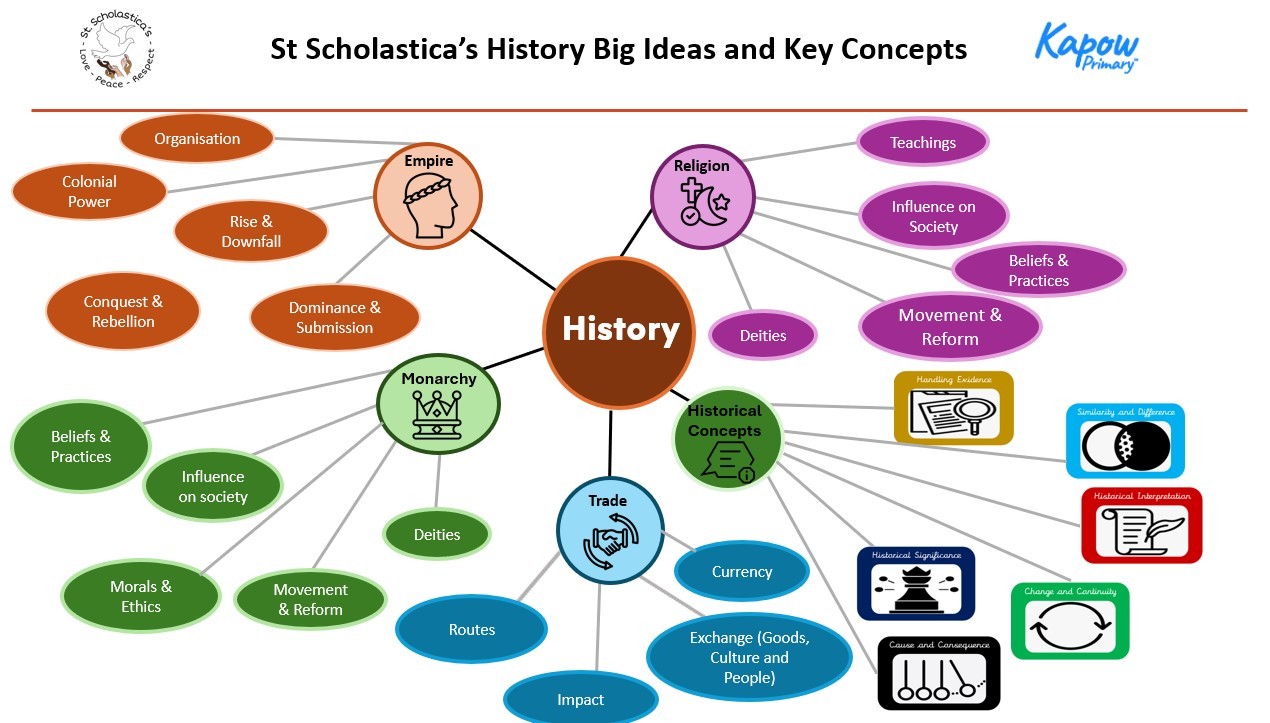Our Vision for History
At St. Scholastica’s, we are committed to providing a history curriculum that empowers our children to construct a secure and engaging chronological narrative of both Britain’s past and the wider world. Our goal is to ensure that every child develops a deep understanding of the history of the United Kingdom, recognising how individual lives and communities have shaped our nation’s evolution.
We will explore the reciprocal influences between Britain and the wider world, enabling children to grasp significant historical events and trends. Our curriculum will include in-depth studies of ancient civilizations, the dynamics of empires, and the distinctive features of past non-European societies, fostering a global perspective.
We will celebrate the rich diversity of Britain, helping students appreciate how various cultures have contributed to our collective identity. By examining the achievements and follies of humanity, we will encourage critical thinking and empathy.
Together, we will nurture informed, compassionate citizens who understand the complexities of our shared past and are inspired to contribute positively to our future.

